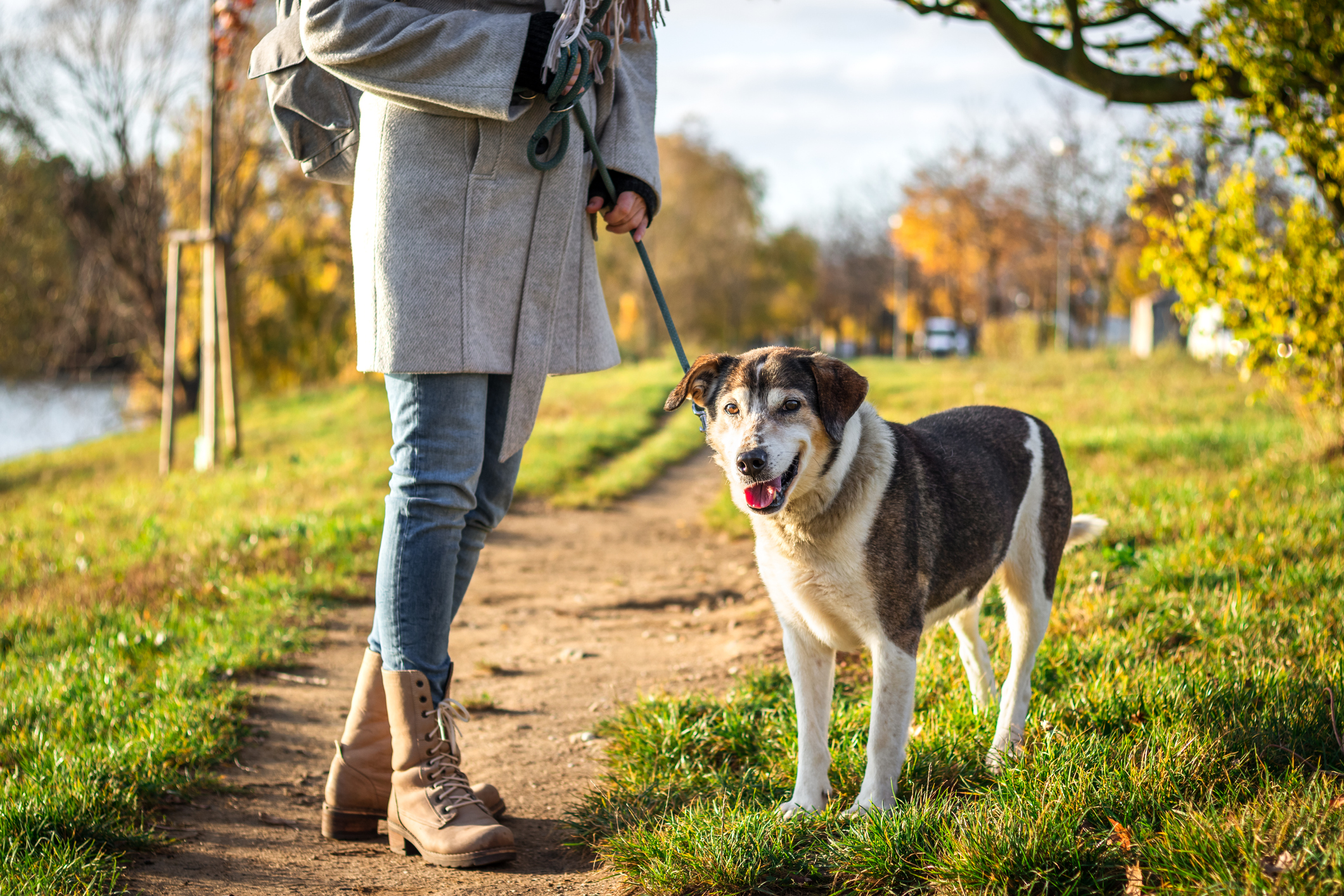Can Walking Help Your Dog Lose Weight?
Doctor of Veterinary Medicine

While efforts are made to answer all questions as quickly as possible, if an immediate answer is required or if your pet is in need of urgent or emergency care, contact your pet's veterinarian immediately.
Doctor of Veterinary Medicine

You will receive an answer from Dr. Lindsay and our vet/tech team as soon as possible, usually the same day.
All answers are provided for informational or educational purposes only, and are intended to be a supplement to, and not a substitute for, the expertise and professional judgment of your pet's veterinarian.
It may be necessary to consult your pet's veterinarian regarding the applicability of any opinions or recommendations with respect to your pet's symptoms or medical condition.
CloseDoctor of Veterinary Medicine

An error has occurred, please reload the page and try again.
CloseDoctor of Veterinary Medicine

While efforts are made to answer all questions as quickly as possible, if an immediate answer is required or if your pet is in need of urgent or emergency care, contact your pet's veterinarian immediately.
There is no answer related to your question

Going on plenty of walks offers numerous health benefits for dogs. But if your dog is struggling to maintain a healthy weight, walking alone might not be enough to achieve their get-healthy goals.
In honor of Walk Your Dog Week, learn how and why going for walks can be just one integral part of your dog’s weight management plan.
How Many Calories Do Dogs Burn While Walking?
As it turns out, dogs only burn just under 1 calorie per mile per pound of body weight when walking at a pace of 15 minutes per mile, which is a brisk walk.
To put that in perspective, you can calculate your dog’s daily caloric deficit to determine how many calories they’ll need to burn to lose weight. For dogs that need to lose weight, veterinarians recommend multiplying your dog’s weight in pounds by five, then reducing their daily caloric intake by that number. So, a fifty-pound dog will need to consume 250 calories fewer than they burn each day.
That means it would take a fifty-pound dog at least 5 miles, at 15 minutes per mile or 75 minutes total, of brisk walking each day to achieve a caloric deficit of 250 calories if their diet stays the same. While 75 minutes of walking, possibly split up into multiple outings, can be achievable for some dogs and their owners, it may not be realistic for others.
Does This Mean Dogs Don’t Need Walks To Lose Weight?
While walking your dog will not help them burn that many calories, exercise is still an essential part of a healthy lifestyle.
Exercise strengthens muscles and supports hip and joint mobility, reducing your dog’s chances of developing arthritis prematurely. Your dog’s heart health, mental health, digestion, and even behavior can all benefit from regular walks.
How To Help Your Dog Burn More Calories on Walks
If you’d rather not spend hours walking laps around the park, you can increase the rate at which your dog burns calories by increasing the intensity of the exercise. You can do this by:
• Walking at a steady, slightly faster pace
• Sprinting in 30-40 second intervals between 5 minute rest periods of walking
• Walking or hiking on steep, uneven terrain
• Adding weight by having your dog carry supplies in a dog backpack
Increasing the intensity of your dog walks can help burn more calories, but may not be appropriate for all dogs. Puppies under 12 months of age are prone to growth plate injuries while they are still growing. Senior dogs, those with disabilities, obesity, and other mobility limitations may not be able to handle heavy workouts, but can still benefit from low impact walks on flat, even terrain.
Maintaining Weight Through Diet
Exercise can increase your dog’s appetite, and additional food will quickly cancel out calories burned on walks. That’s another reason exercise plays only a small, though important part in helping your dog achieve or maintain a healthy weight.
As a general guideline, exercise can contribute to about 30% of your dog’s caloric deficit, while the remaining 70% will need to happen through dietary changes.
To safely reduce your dog’s caloric intake without creating nutritional deficiencies, switch to a weight management dog food. Look for a recipe that’s high in protein to help your dog build muscle and feel satiated on fewer calories.
When To Talk To Your Veterinarian
It’s essential to keep up with annual wellness appointments so your veterinarian can assess your dog’s body condition. Your veterinarian can help you decide on your dog’s goal weight and the best way to achieve it. They can also recommend or even prescribe a veterinary dog food that’s formulated to help your dog safely achieve lasting results and maintain their weight over time.
Ready to kick off your dog’s diet and exercise plan? Schedule a same-day online vet appointment through VetLive to get personalized advice to help your dog achieve and maintain a healthy weight.
 Swipe
Swipe


















